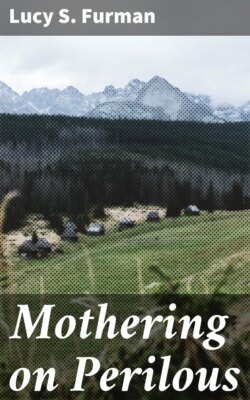Читать книгу Mothering on Perilous - Lucy S. Furman - Страница 10
На сайте Литреса книга снята с продажи.
Monday Night.
ОглавлениеTable of Contents
Early this morning I was taken around by Philip and a smaller boy named Geordie to see the buildings—handsome ones of logs, set in a narrow strip of bottom land along Perilous Creek. The "big house" especially, a great log structure of two-dozen rooms, where the settlement work goes on, and the teachers and girls live, is the most satisfying building I ever saw. There are also a good workshop, a pretty loom-house, and a small hospital, and the last shingles are being nailed on the large new school-house. When I asked the boys why any school-term should begin the first of August, they explained that the children must go home and help their parents hoe corn during May, June and July.
All day the children who are to live in the school, and many more who hope to, were arriving, afoot or on nags, the boys, however small, in long trousers and black felt hats like their fathers, the girls a little more cheerfully dressed than their mothers, whose black sun-bonnets and somber homespun dresses were depressing. Many of the parents stayed to dinner. There is a fine, old-fashioned dignity in their manners, and great gentleness in their voices. I have always heard that, shut away here in these mountains, some of the purest and best Anglo-Saxon blood in the nation is to be found; now I am sure of it. It was pathetic to see the eagerness of these men and women that their children should get learning, and to hear many of them tell how they themselves had had no chance whatever at an education, being raised probably sixty or eighty miles from a school-house.
Late in the afternoon, as Philip, Geordie and I were fastening up straying rose-vines on the pine-tree pillars of the "big house" porch, a one-legged and very feeble man, accompanied by a boy, dismounted at the gate and came up the walk on a crutch. During the time he sat on the porch, my two assistants abandoned their work to stare open-mouthed at him. When he was called in to see the heads, Geordie inquired of his boy,
"How'd your paw git all lamed up thataway?"
My two assistants abandoned work to stare open-mouthed at him.
The new arrival pulled his black hat down, frowned, and measured Geordie with gray, combative eyes, before replying, coldly,
"Warring with the Cheevers."
"Gee-oh, air you one of the Marrses from Trigger Branch of Powderhorn?"
"Yes."
"What's your name?"
"Nucky."
"How old air you?"
"Going-on-twelve."
"What kin is Blant Marrs to you?"
"My brother."
"You don't say so! Gee, I wisht I could see him! Have you holp any in the war?"
"Some." Here Nucky was called in, to the evident disappointment of his interlocutor. Later, I saw him at the supper-table, gazing disapprovingly about him.
After supper I had a few minutes talk with the busy head-workers, and placed myself at their disposal, with the explanation that I really knew very little about anything, except music and gardening. They said these things are just what they have been wanting—that a friend has recently sent the school a piano (how did it ever cross these mountains!) and that some one to supervise garden operations is especially needed. "Besides, what you don't know you can learn," they said, "we are always having to do impossible and unexpected things here—our motto is 'Learn by doing.'" I am very dubious; but I promised to try it a month.
They told me that between six and seven hundred children had been turned away to-day for lack of room—only sixty can live in the school, though two hundred more attend the day-school, which begins to-morrow.
